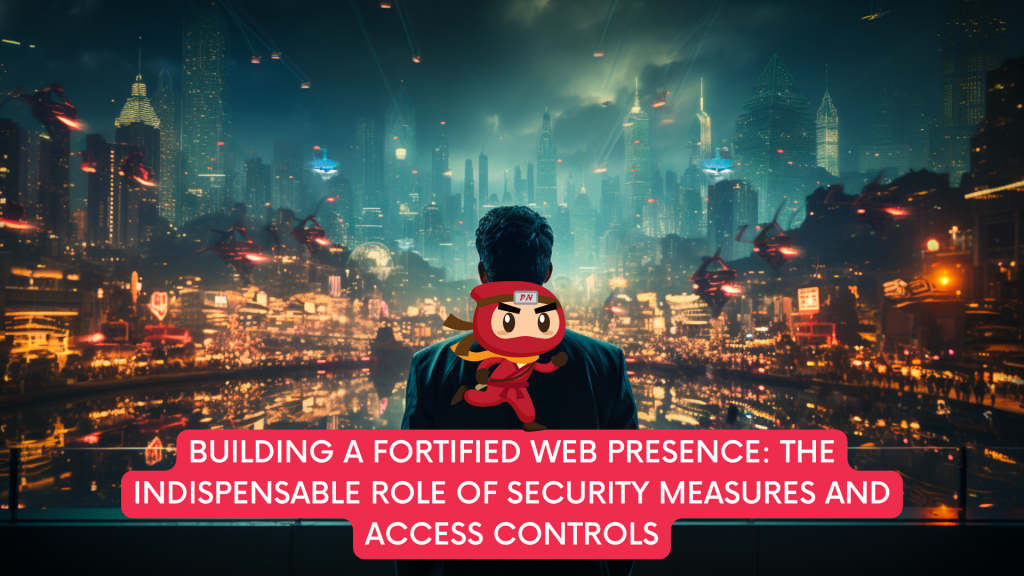
Launching a webpage is a pivotal moment for any entity, be it a business, organization, or individual. However, in the pursuit of an engaging online presence, security should never be an afterthought. It is imperative that robust security measures are always put in place to safeguard against potential threats. Whether engaging a vendor or managing it internally, a written agreement detailing the necessity of these security measures is paramount.
The launch of a webpage marks the beginning of its digital journey, and ensuring its security is foundational to sustained success. Security breaches can lead to reputational damage, legal complications, and the compromise of sensitive information. Therefore, organizations must adopt a proactive stance, making security a top priority from the inception of their web presence.
When engaging a vendor for webpage development or maintenance, it is crucial to establish clear expectations regarding security. A written agreement should explicitly outline the security measures that will be implemented, covering aspects such as data encryption, secure transmission protocols, and protection against common cyber threats.
The importance of efficient access controls cannot be overstated when it comes to preventing personal data breaches. Access controls serve as a foundational yet resilient layer of protection, mitigating the risk of unauthorized access to sensitive information. Beyond safeguarding personal data, these measures contribute to enhancing the overall security stance of an organization’s webpage.
Implementing robust access controls involves defining user roles and permissions, ensuring that individuals have access only to the information necessary for their responsibilities. This principle of least privilege minimizes the potential impact of a security breach. Multi-factor authentication adds an extra layer of security, requiring users to provide multiple forms of identification before gaining access.
Efficient access controls not only mitigate the risks associated with personal data breaches but also contribute to an organization’s overall cybersecurity posture. By preventing unauthorized access, organizations can build trust with users and stakeholders, showcasing a commitment to data protection and privacy.
Regular audits and assessments of access controls are essential to identify and address vulnerabilities. This ongoing evaluation ensures that the security measures remain robust and adaptive to evolving cybersecurity threats. Additionally, incorporating employee training on security best practices further fortifies the human element of cybersecurity, reducing the likelihood of inadvertent breaches.
Security measures and access controls should be integral components of the entire webpage lifecycle, from development and launch to ongoing maintenance. Regular security updates, patches, and monitoring are essential to address emerging threats and vulnerabilities. This proactive approach not only safeguards against potential risks but also demonstrates a commitment to the long-term integrity of the webpage.
In conclusion, the launch of a webpage is a momentous occasion, but it should not come at the expense of security. Whether working with a vendor or managing the process internally, organizations must prioritize security measures and access controls. A written agreement with vendors should detail the specific security protocols to be implemented. Efficient access controls not only prevent personal data breaches but also contribute to an organization’s overall cybersecurity resilience. By integrating security into the entire lifecycle of the webpage, entities can build a fortified online presence that instills confidence, trust, and longevity in the digital landscape.
Your appointed DPO can work with you on your PDPA compliance, ensuring that there will be policies in place to make sure that the handling of personal data is PDPA compliant.
A Data Protection Officer (DPO) oversees data protection responsibilities and ensures that organisations comply with the Personal Data Protection Act (PDPA). Furthermore, every Organisation’s DPO should be able to curb any instances of PDPA noncompliance as it is the officer responsible for maintaining the positive posture of an organisation’s cybersecurity.
DPOs complement organisations’ efforts to ensure that the organisation’s methods of collecting personal data comply with the PDPA. It also ensures that policies are set in place to make sure that there will be no instances of data breaches in the future.
Don’t wait any longer to ensure your organisation is PDPA compliant. Take our free 3-minute PDPA Compliance Self-audit checklist now, the same “secret weapon” used by our clients to keep them on track. Upon completion, we will send you the results so you can take the necessary action to protect your customers’ data. Complete the free assessment checklist today and take the first step towards protecting your customers’ personal data.
Role of Enhanced Access Controls in Safeguarding Personal Data in Telecommunications that every Organisation in…
Effective Incident Response Procedures in Strengthening Data Security that every Organisation in Singapore should know…
Crucial Role of Regular Vulnerability Scanning that every Organisation in Singapore should know. Strengthening Your…
Enhancing Data Security with Multi-Factor Authentication that every Organisation in Singapore should know. Enhancing Data…
Strong Password Policy as a first line of defense against data breaches for Organisations in…
Importance of Efficient Access Controls that every Organisation in Singapore should take note of. Enhancing…
This website uses cookies.